As much as we can, we try to spruce up our home's security even in little ways. Sometimes, that includes planting privacy trees that can create a better buffer from the outside world to the inside of our property. Many plants have thick and compact foliage that can protect our home from prying eyes, but one is meant to be better than the other. So, which one would be better for privacy: Arborvitae or Juniper? Let's discuss.
Junipers and Arborvitae are evergreen plants. They are both dense, but arborvitaes have a more dense and compact structure compared to Junipers. Junipers have looser foliage that you can still see some branches and stems.
- If you have a smaller space, go with Junipers since they don’t grow as tall as Arborvitaes.
- If you have a large landscape, go with Arborvitae since they can be an excellent privacy screen that spans up to 15 feet.
Evergreen plants can give your landscape not only privacy screens but also hedges which can give your space texture and a sense of structure. Both Arborvitae and Juniper evergreens have unique qualities that can be more compatible with your landscape. Keep reading below to find out.
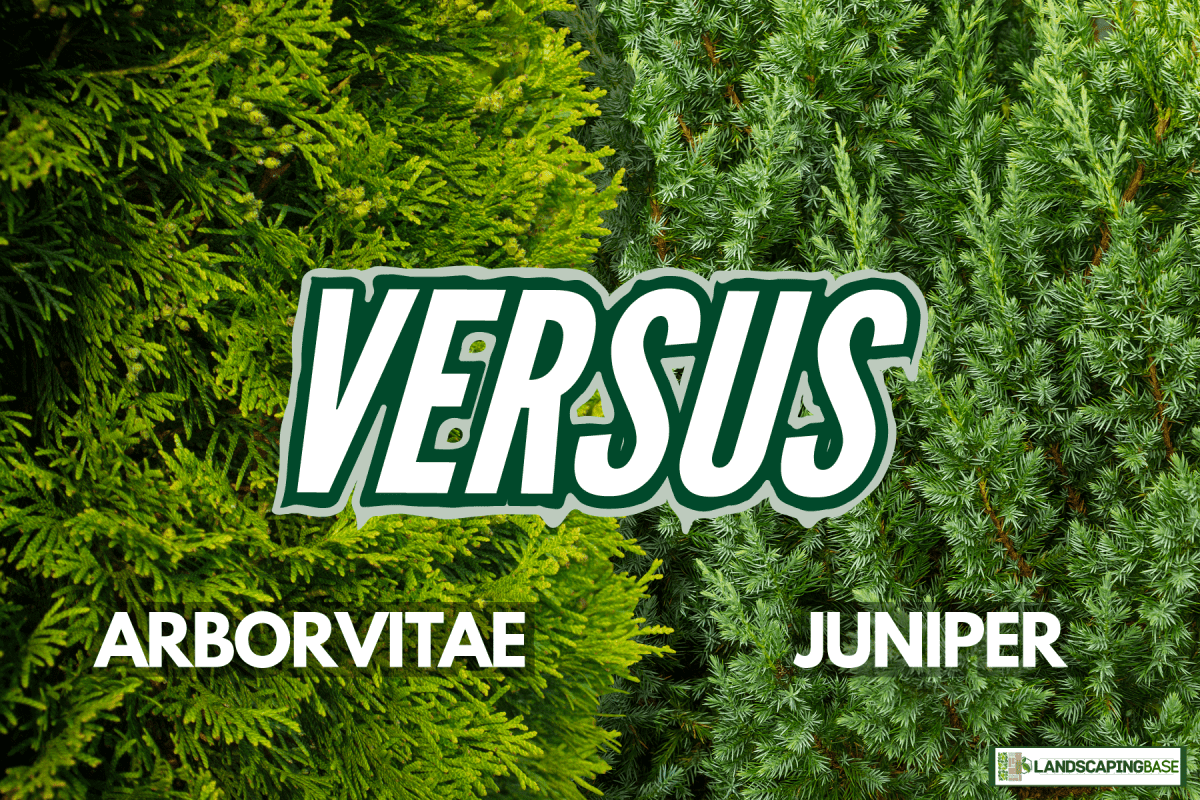
How To Grow Arborvitae
Arborvitaes, also known as Thujas Occidentalis, is an evergreen plant that can thrive under full to partial sunlight. They are fairly easy to take care of once they’re established.
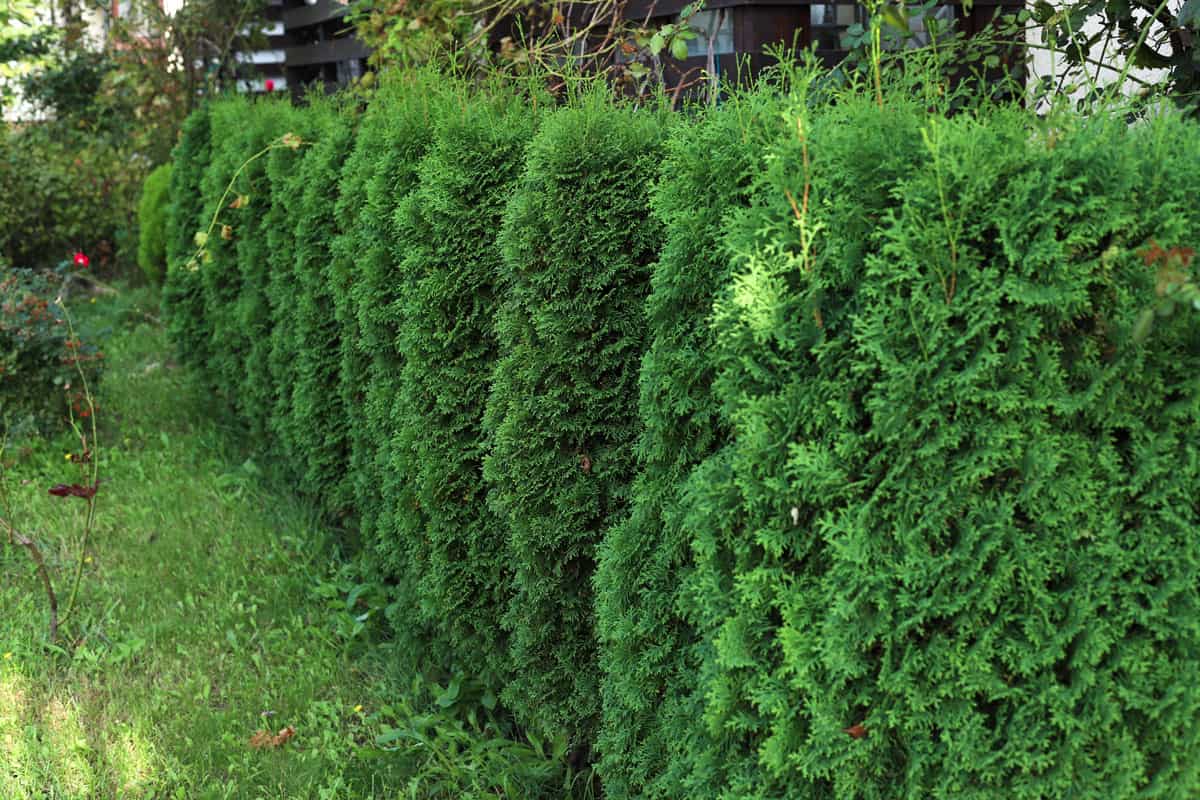
Before you plant them, make sure the soil is slightly alkaline and slightly acidic. Keep the soil well-drained so the roots don’t rot, and enhance it with fertilizer.
When should you plant Arborvitae?
It is best to plant arborvitae during a period where the soil can be easily amended. If you plant it during the fall, make sure to work the soil before the land freezes over.
How often should you water arborvitae?
If it is still developing, you need to water the plant twice every week. You can slowly transition to watering the soil with only 1 inch of water just to keep the moisture level stable.
Arborvitaes don’t require too much water once it has matured. You can water them during hot spells, or during an extended period of drought just to prevent them from drying out.
If you neglect your developing arborvitae or forget to water it during a drought, the leaves will turn brown or yellow until the foliage sheds.
When this happens, your hedges and privacy screens will no longer do their job.
How to Grow Junipers
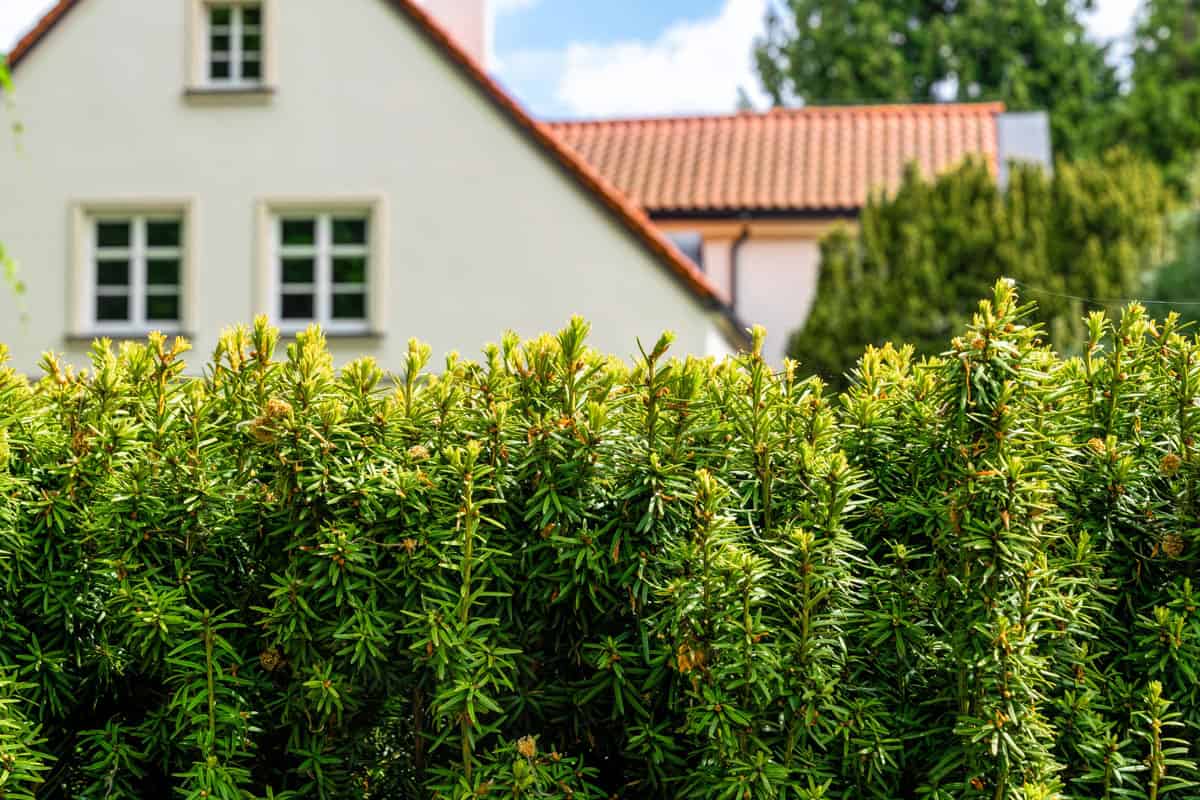
If you want something that doesn’t require too much pruning and trimming, juniper hedges may be for you.
Junipers thrive best under full sunlight, especially if you want to keep Junipers as privacy hedges. This is because the branches and foliage will have bigger gaps the more they try to reach out for more sunlight.
It is best to grow juniper hedges if you live in an area with a lot of access to full sunlight since they will retain their shape better in that area.
Once the branches and leaves had formed large gaps, it would be nearly impossible to make them dense again.
When should you plant Junipers?
You can plant them during the fall since it would prevent the roots from going through heat or cold stress.
This will make the roots settle better into the ground, creating an ideal foundation for its growth in the spring.
How often should you water Junipers?
Junipers are relatively low-maintenance once they’ve been established. Most likely, you’ll only have to water them during extended periods of drought just so they won’t dry out,
Developing Junipers will need to be watered weekly until the roots appear. Keep your soil well-drained with the right amount of moisture, and you can leave it alone until pruning season.
Privacy Hedges Benefits
Hedges make your landscape look more defined. They provide boundaries, outline your landscape, and make your space look more manicured.
However, adding hedges to your landscape has a myriad of benefits aside from its aesthetic appeal. Here are ways privacy hedges can elevate your quality of life
Better Privacy
Privacy hedges essentially act as our outdoor walls that prevent prying eyes from invading our privacy.
They are also less daunting and natural; it doesn’t communicate that you’re intending to be shut off from the world since they look natural against your landscape compared to when you build a large wall around your house.
Absorbs Strong Winds
If you live in an area that experiences strong gusts of wind occasionally, large privacy hedges like Arborvitaes will benefit you.
These hedges will be able to absorb the impact of the wind so that you can have a better time relaxing in your yard without worrying about things being blown around.
Provides Shade
This is a no-brainer: large hedges will naturally block out the sun, especially during summer afternoons when the sun is at its peak strength.
You’ll have a better time relaxing or doing recreational activities in your yard since the hedges can cool down your surroundings.
Large hedges can also protect the inside of your home from harmful UV rays depending on how compact and tall these hedges are.
Noise Buffer
Dense and compact hedges absorb noise better so you won’t always be disturbed by minor noises outside.
Although naturally, it won’t prevent very loud noises from being heard, you would at least provide a buffer from other disruptive sounds that can interrupt your rest.
Other Privacy Hedges for your landscape
Aside from Juniper and Arborvitae, there are other privacy hedges that might appeal to you. Here are other options you can look into.
Camellia Hedges
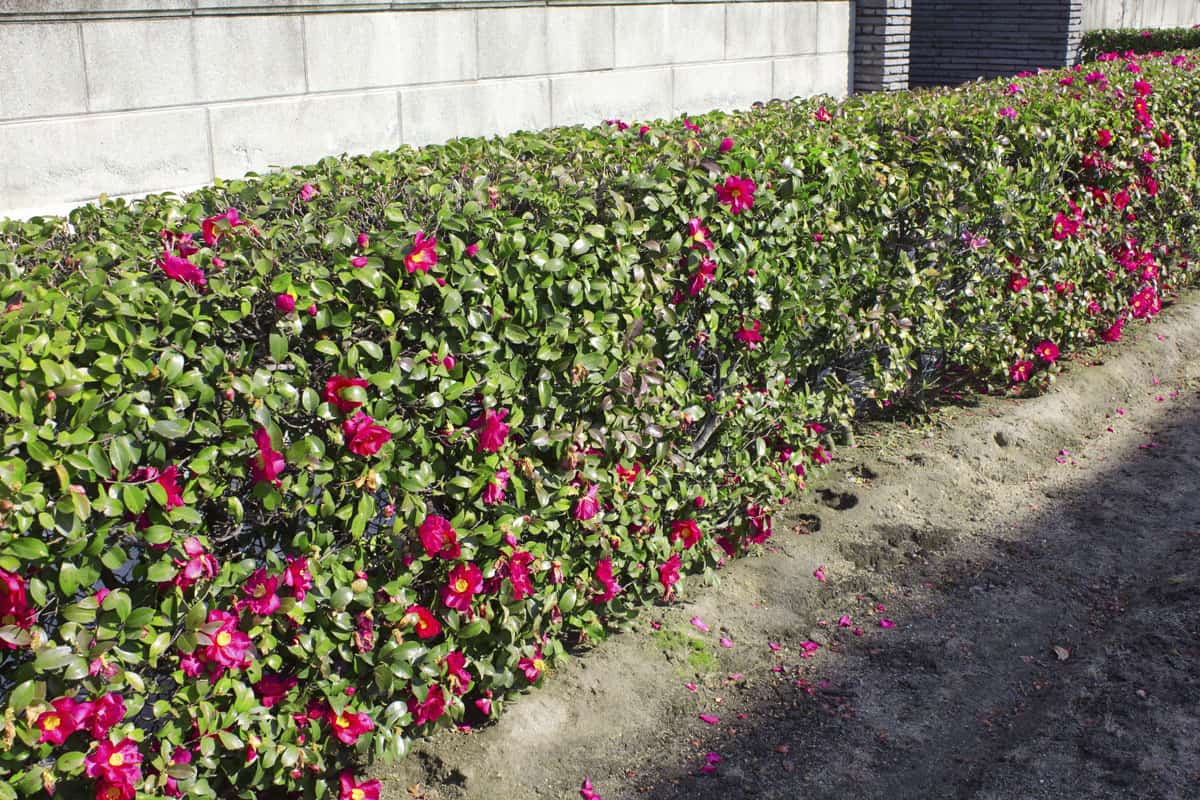
If you have a small space, you can plant Camellia Hedges around your landscape.
They provide aesthetic value with their bright pink blooms, although they don’t grow as tall as other hedges such as Juniper and Arborvitae.
They can grow up to 3 meters tall within 3 to 5 years, and you can prune and trim them to any shape or form you like.
If you live in a place that experiences temperatures below freezing, don’t worry too much—only the flowers are likely to be damaged, and after the season has passed, the flowers could grow again after some tending.
For better results, make sure to saturate the soil with water days or weeks before winter.
Laurel Hedges
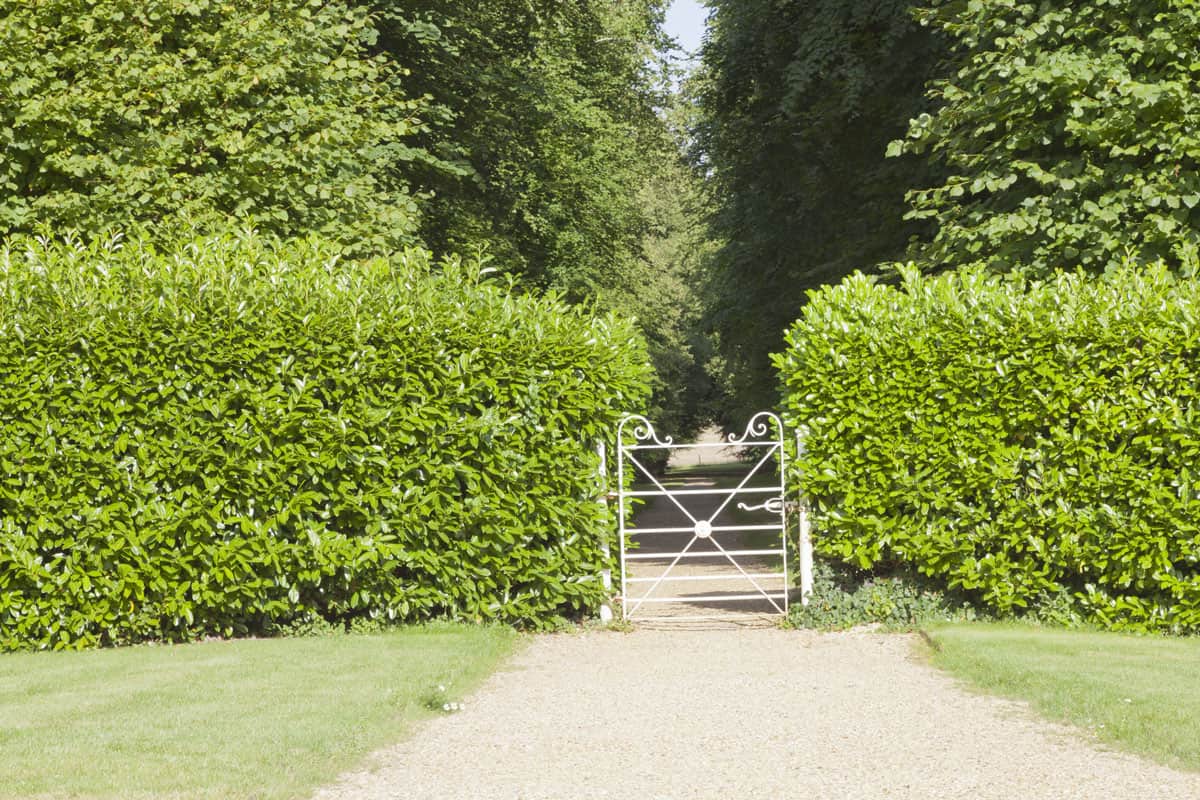
Laurel hedges are one of the best privacy hedges you can have in your landscape if you live in a shaded area. They are fast-growing, so you can expect them to be 24 inches taller every year.
They have large leaves which are also compact and dense, so you can have excellent privacy in your property.
Lilac Hedges
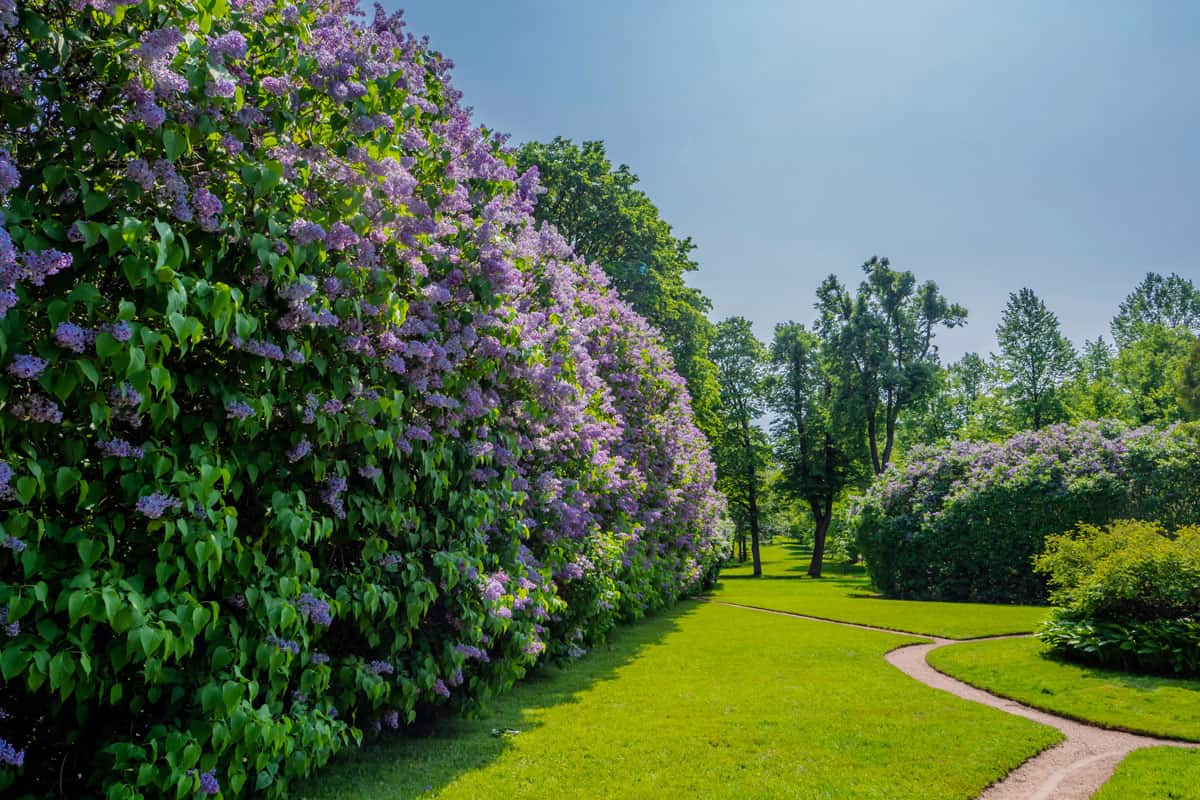
Lilac hedges have the most visually appealing quality because of their purple blooms, creating a natural flower wall around your landscape.
However, these hedges are deciduous, so they will most likely shed and not give you enough privacy during the fall. It will grow back in the spring, and you can prune it to retain its form.
They also require to be planted in full sunlight since the flowers won’t bloom without it.
Final Thoughts
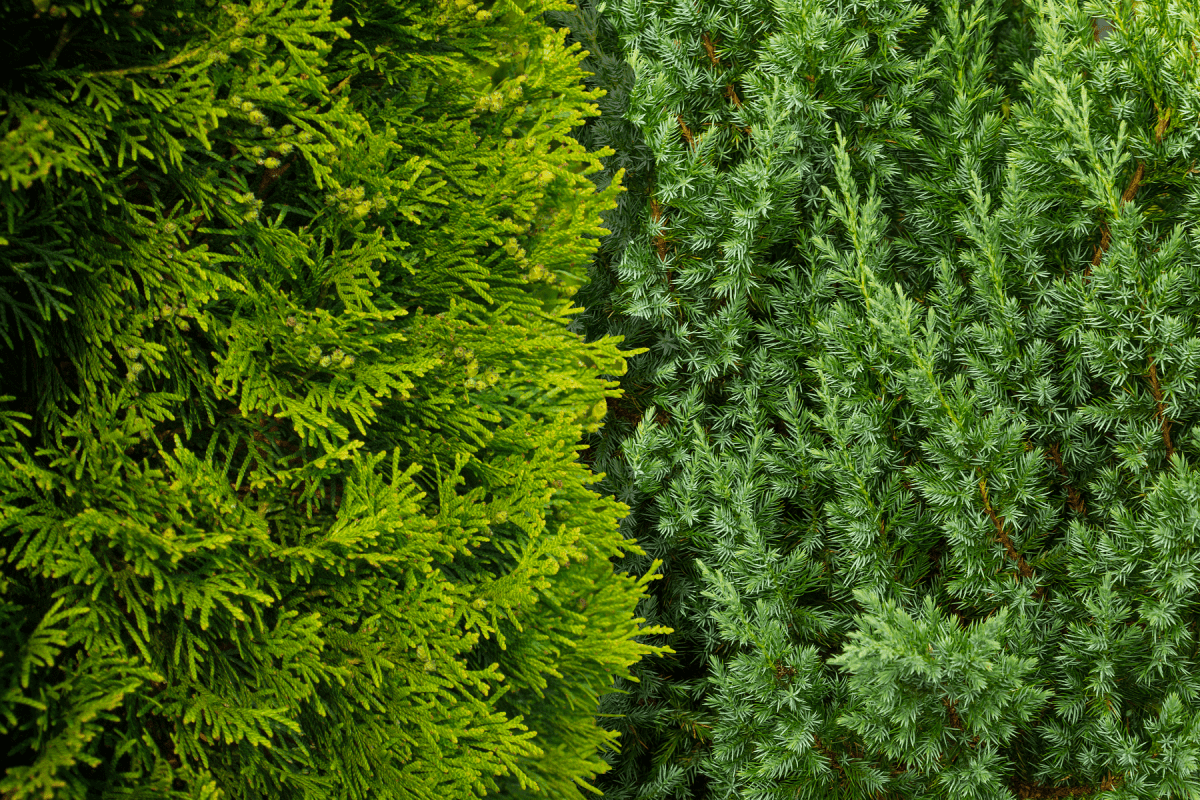
Having privacy hedges around your landscape can elevate your daily life and make your space look more relaxing. Make sure you plant hedges that are compatible with the weather in your area so you won’t face inconveniences later on.
If you enjoyed this article, check out 15 Great Solar Lighting Ideas For A Retaining Wall or Can You Put Rubber Mulch Over Regular Wood Mulch?

![man replanting herb with yellow flowers for use in landscaping. 15 Perennials That Absorb Water [Incredible Choices For Foundation Landscaping]](https://landscapingbase.com/wp-content/uploads/2022/09/man-replanting-herb-with-yellow-flowers.-15-Perennials-That-Absorb-Water-600x400.png)
![Big custom made luxury house with nicely trimmed and landscaped front yard, South Facing Front Yard Landscaping Ideas [17 Ideas To Increase Your Curb Appeal]](https://landscapingbase.com/wp-content/uploads/2022/09/BIGCUS1-600x400.jpg)
